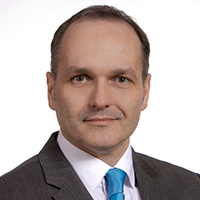Leadership Transformation
Komplexität meistern.
Menschen gewinnen.
Ergebnisse erzielen.
Führung in Bewegung –
warum Leadership jetzt anders funktioniert
Die Arbeitswelt verändert sich – Werte, Generationen und Erwartungen wandeln sich. Klassische Hierarchien verlieren an Bedeutung, doch gerade in stürmischen Zeiten brauchen Mitarbeitende klare Führung und Entscheidungen, kombiniert mit individueller Förderung, Einbindung und Freiraum.
Empathie und Wertschätzung müssen im Alltag wirklich erlebbar sein. Das erfordert nicht nur neue Fähigkeiten, sondern vor allem eine veränderte Haltung – und die Bereitschaft, das eigene Führungsverständnis weiterzuentwickeln und die Rolle aktiv auszufüllen.
IHRE Herausforderungen in der Praxis
Wandel beschleunigen, ohne Menschen zu verlieren
Entscheidungen treffen, obwohl Informationen fehlen
Nähe schaffen, obwohl Strukturen auf Distanz setzen
Leistung fordern und gleichzeitig Empathie zeigen
Unser Ansatz –
Leadership transformation statt nur Change
Viele nennen es Transformation, meinen aber Change. Change verändert Aktivitäten, Transformation verändert Haltung. Wir arbeiten systemisch und werteorientiert: Wir machen Muster sichtbar, schärfen Bewusstsein und übersetzen Erkenntnisse in den Führungsalltag. So entstehen Klarheit, Vertrauen und echte Verantwortungsübernahme. Messbar, wenn gewünscht, durch Leadership Assessments und 360°-Feedback.

Im Rahmen einer Workshop-Reihe begleiten wir Führungskräfte durch einen strukturierten Transformationsprozess: Bewusstsein für sich selbst entwickeln, Wahrnehmungs- und Verhaltensmuster erkennen und gezielt verändern. Wir arbeiten mit psychologisch fundierten, praxisnahen Modellen aus dem bewährten Curriculum, die auch sachorientierten Führungskräften einen klaren Zugang zur kulturellen Dimension ihrer Arbeit eröffnen – für nachhaltigen Erfolg und eine starke Ausrichtung auf die Unternehmensvision.
aergon Whitepaper
Erfolgsfaktor Leadership
Wie Sie sich und Ihre Teams fit machen durch Klarheit und Fokussierung in stürmischen Zeiten
Besonders in stürmischen Zeiten wie diesen reicht es nicht, auf Veränderungen nur zu reagieren. Die wahre Herausforderung besteht darin, selbst zur Gestalterin oder Gestalter des Wandels zu werden. Dieses Whitepaper richtet sich an Führungskräfte, die nicht nur den Überblick behalten, sondern bewusst Richtung und Klarheit vermitteln wollen.

Wie Wir in der Leadership Transformation arbeiten
1
Bewusstsein schaffen
Führungsmuster erkennen, Wirkung verstehen, blinde Flecken sichtbar machen.
2
Haltung entwickeln
Werte, Kommunikation und Entscheidungen ausrichten für Klarheit und Präsenz.
3
Verhalten verankern
Tools, Routinen und Follow-ups sichern Transfer: Absicht statt Zufall.
Was Leadership Transformation im Alltag bedeutet
Klarheit schaffen, Grenzen setzen, sich durchsetzen – aber auch loslassen, Raum geben und den richtigen Moment für das eine oder andere erkennen. Leistungsträger fördern, Widerstände auflösen und die langsameren in Bewegung bringen, statt die Engagierten auszubremsen. Dazu gehören bewährte Werkzeuge wie Delegieren, Justieren, Loben und Kritisieren und die Fähigkeit, Mitarbeitende mit ihren Werten und Bedürfnissen wahrzunehmen.

Unsere Programmbausteine, die Für Sie wirken
Unser Leadership-Transformation-Programm basiert auf psychologisch fundierten Modellen und systemischer Organisationsentwicklung.
Es verbindet Tiefgang mit Umsetzbarkeit – und hilft, Kultur und Leistung in Einklang zu bringen.
So zufrieden sind unsere Kunden:

„aergon und konkret Beate Junginger haben mich wesentlich in einer sehr anspruchsvollen Transformation unterstützt und mir geholfen, das Management-Team auf die nächste Ebene von Vertrauen und Erfolg zu heben.
Die gemeinsame Arbeit war für alle ausgesprochen intensiv und persönlich bereichernd.
Dr. Marco Ferber
CFO init innovation iri traffic systems SE

Wer macht das?
Ich bin Beate Junginger, Gründerin und Geschäftsführerin von aergon, und ich begleite Führungskräfte, Teams und Organisationen dabei, Wandel bewusst zu gestalten: mit Klarheit, Haltung und Herz. Mich begeistert es, Menschen mit ihrem eigentlichen Wesen, ihren Talenten und gemeinsamen Kräften in Verbindung zu bringen – damit aus Sinn und Vertrauen nachhaltiger Erfolg entsteht.
Fragen, die uns immer wieder gestellt werden
Was ist der Unterschied zwischen Change und Transformation?
Change bedeutet, andere Dinge zu tun. Transformation bedeutet, Dinge grundlegend anders zu tun. Doch bevor echte Veränderung möglich ist, braucht es Bewusstsein für das bisherige Handeln – und genau das fehlt oft. Was heute als „Transformation“ gilt, ist meist nur ein Wechsel der Aktivitäten: klassischer Change, der sich auf äußere Anpassungen konzentriert. Echte Transformation beginnt im Inneren der Menschen mit einem Paradigmenwechsel in Haltung, Denken und Selbstverständnis. Erst daraus entstehen neue Handlungen im Außen.
Was braucht es, damit die Transformation erfolgreich wird?
Sie muss von oben kommen. Vorstand und Geschäftsführung geben Richtung und Glaubwürdigkeit. Viele Mitarbeitende sind skeptisch, weil viele Initiativen versanden. Vertrauen entsteht nur, wenn Führung sichtbar Verantwortung übernimmt. Darum arbeiten wir mit den ersten drei Führungsebenen. Präsenz ist entscheidend, sonst verliert der Wandel Momentum.
Warum sollten wir Zeit und Geld für eine Kultur-Transformation investieren, wenn doch beides gerade knapp ist?
Gerade dann leidet die Kultur: Druck und Unsicherheit senken Motivation und Zusammenarbeit. Kultur-Transformation schafft Klarheit, Fokus und Orientierung. Sie stärkt das Miteinander, steigert Produktivität und gibt Zuversicht. Vorausschauende Unternehmen handeln nicht erst in der Krise – wie bei der Gesundheit: Vorbeugen ist heilen.
Lust auf echten Wandel?
Lassen Sie uns gemeinsam herausfinden, wie Ihre Leadership den Unterschied machen kann.
Kontaktformular

